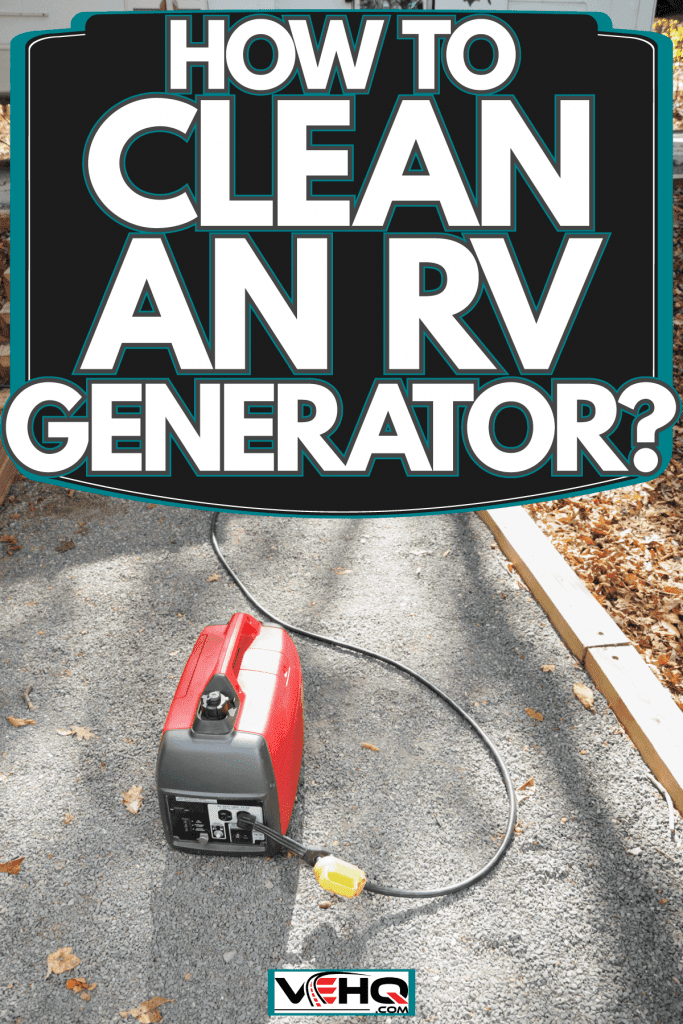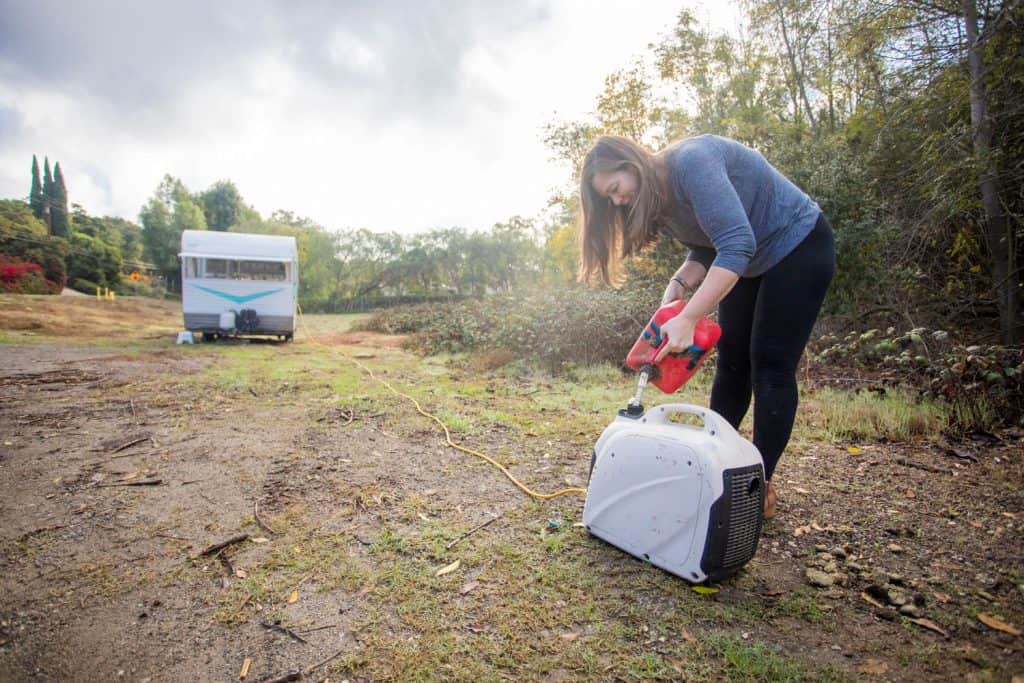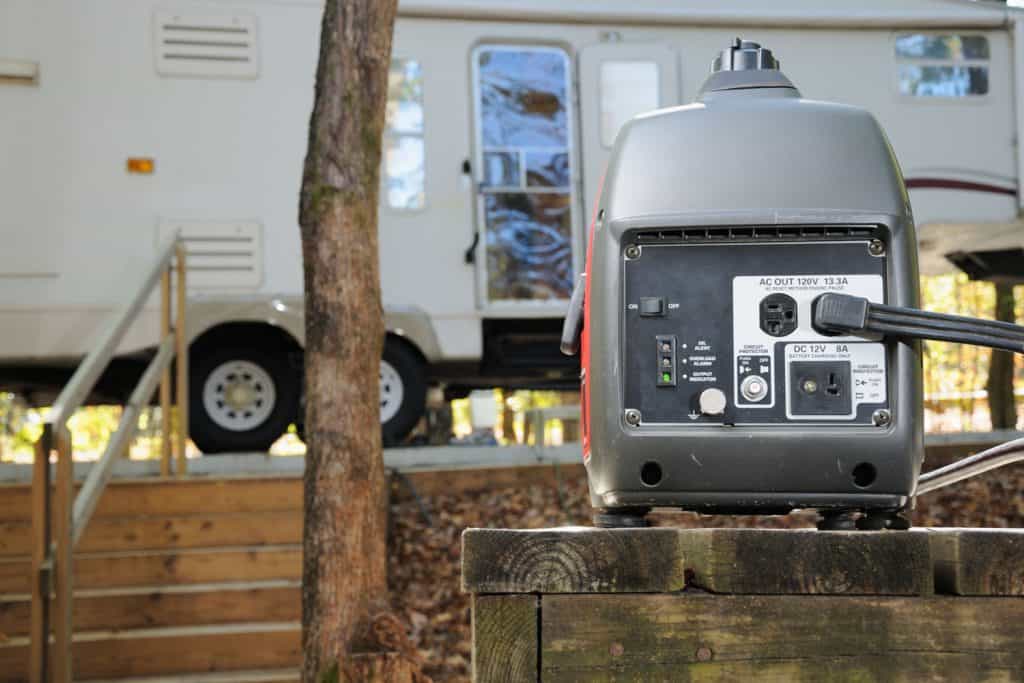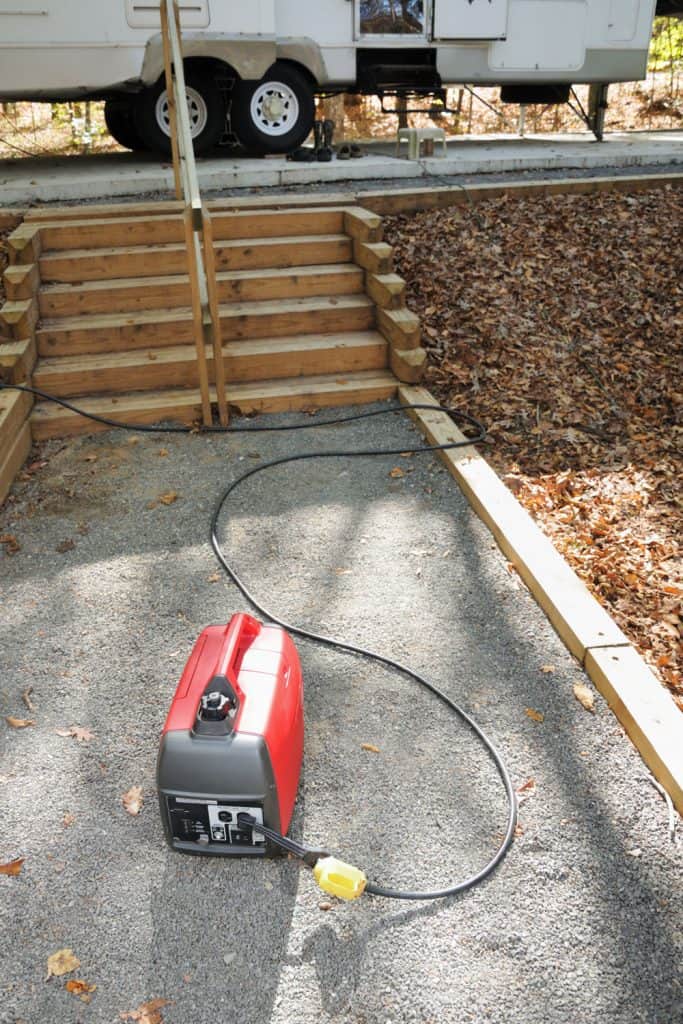RV generators are often workhorses that provide sufficient power to connected appliances in camping vehicles. Regular cleaning can help ensure that these engines are working at peak efficiency. So it begs the question, how can you clean the generator in your RV? We researched and consulted with many experts to give you the following answer.
You can use the can & hose method to clean an RV generator. You'll only need some items for this method, like the Sea Foam Motor Treatment solution, a fuel canister, and a small section of the fuel line. Once you acquire those items, the steps to clean the power-generating engine are:
- Mix the Sea Foam solution with fuel in the canister.
- Warm up the generator for about 5 minutes, and turn it off.
- Disconnect the fuel line and connect the canister to the engine.
- Start the engine again for it to suck up the mixture in the container.
- Turn off the generator and reconnect the fuel line.
Regular maintenance is important to keep the generator from running into problems. Take note that you should also use the correct equipment and tools to avoid harming the engine. Keep reading as we tackle the steps to clean an RV generator in greater detail. We’ll also talk about other essential matters, such as the correct products to use in caring for this engine.

What Can I Use To Clean My Generator?
Different products are available to ensure an RV generator runs smoothly. These items include:
- Oil: SAE30 or 15W-40 oil should work well in lubricating motorhome generators. You can also consult your owner’s manual or ask the generator’s manufacturer if your specific model requires a particular oil.
- Can & hose mix: A mixture of one part Sea Foam’s Motor Treatment solution and two parts fuel can help enhance a generator’s functionality.
Take note that the items listed above are for cleaning an RV generator’s interiors. You should also pay attention to the dirt and gunk buildup on the power source.
Washing the generator with a pressure washer can help remove the stubborn filth. Make sure not to directly point the pressure washer into the generator as the excess moisture can damage it.

How Do You Clean An RV Generator?

RV generators can contract filth or muck over time. In turn, these engines can become clogged, reducing the amount of air and fuel from reaching their cylinders. Follow the guides below to make sure the generator in your camper or travel trailer works with optimal efficiency:
What You’ll Need
- Sea Foam Motor Treatment
- Small fuel canister
- Section of the fuel line
- Plug wrench
Step-by-Step Guide for RV Generator Routine Maintenance Cleaning
- Mix one part of Sea Foam Motor Treatment for every two parts of fresh gasoline into the fuel canister.
- Start and warm up the generator engine. Let it run for about 5 minutes. Doing so will heat the intake.
- Turn off the generator after it warmed up. Then, disconnect the main fuel line.
- Attach one end of the short fuel hose to the generator and the other end to the fuel canister.
- Start the generator engine again, and it should suck the solution from the container, cleaning the internals.
- Let the generator run for about 15 minutes while it's still attached to the Sea Foam mix.
- Turn off the generator.
- Hot soak its engine for about 5 to 15 minutes. Then, start the generator again for an extra 5 minutes.
- Reconnect the main fuel line.
Step-by-Step Guide for Cleaning a Gummed-Up Carburetor
In certain cases, your camping vehicle’s generator might need more than routine cleaning, particularly when its carburetor is mucked up. If so, follow the guide below to solve this issue:
- Follow the steps for routine RV generator cleaning above until step 4.
- Drain the carburetor bowl and remove the spark plug using the plug wrench.
- Run the generator's engine for it to suck up the Sea Foam mix.
- Once the engine sucks up the required amount of the solution, let it sit without the spark plug for 1 to 3 days.
- Reconnect the main fuel line.
You can also watch the video below to see the steps mentioned above in action:
How Do I Service My RV Generator?
RV owners can do more than frequent cleaning to ensure the generator on their vehicles works well. Here are some additional methods you can follow to promote excellent functionality from the device:
Pay Attention to the Hour Meter
RV generators generally have hour meters, which are relatively small tools that keep track of the amount of time these engines run. Doing so allows you to keep track of set periods, allowing you to know the right time to have the generator cleaned.
But if the generator in your RV doesn’t have a meter, you can buy an aftermarket model and install it yourself. Watch the video below for the steps:
Check out this hour gauge on Amazon.
Change the Generator’s Fluids
Many generator manufacturers for RVs suggest changing the oil of their engines for the device's first 50 hours of operation. Then, owners should change the oil every 150 hours afterward. Watch the video below if you’re going to change the generator’s oil and filter using DIY techniques as opposed to relying on professional help:
Check out this product on Amazon.
Run the Generator Regularly
Like other machines, generators need to run often for them to work properly. Otherwise, the lube in the internal mechanism can dry and gunk up, leading to extra issues. Don't forget to run the generator for at least 1-hour per 3 to 4 weeks while it's in storage.
You can also turn on connected appliances, such as refrigerators and air conditioners. That way, you ensure that the generator is frequently running at 50% load capacity or more.
Avoid Removing the Covers
Although it may seem counterproductive, removing the RV generator cover while the engine is running won’t cool it down. Instead, the cover should still provide adequate airflow to the generator while filtering dust and other dirty substances from entering.
Check out this product on Amazon.
Additionally, read this post to learn more about maintaining an RV Generator: "RV Generator Maintenance Guide For Beginners."
How Often Should An RV Generator Be Serviced?
The correct period to have an RV generator serviced depends on the type of maintenance procedure required. For instance, the engine should run for at least an hour every 3 to 4 weeks to exercise its internals. Moreover, you should change its oil every 150 hours of use after the first change or at least once a year, whichever option has the higher demand in your specific situation.
How Long Do RV Generators Last?
RV generators’ lifespans are often based on their construction. High-quality generators usually last longer than low-quality variants.
For example, reports indicate that certain propane generators should run over 20,000 hours of use. Some engines can run for more than 12 years, provided owners practice due diligence in exercising regular care for their generators.
Furthermore, you can extend the life of the generator in your RV if you don’t run it longer than the recommended period. With the correct setup, a maintained generator can run up to 20 hours without needing to stop. But you should let the device rest after 8 to 10 hours of use to make sure it doesn’t overheat.
For more information about an RV generator’s running time, read this post: "For How Long Can an RV Generator Safely Run?"
Is It OK To Run The Generator While Driving RV?

You can let the generator run while driving your RV. That engine can supply power to the appliances and electronics in the camping vehicle while you’re on the road.
However, keep in mind that the fuel in the generator generally shares the same supply with the vehicle’s primary engine. Therefore, running the generator while driving can deplete the vehicle’s fuel reserves at a faster rate than usual.
Installing solar panels on your RV's roof can be an option if you want to add more power to your generator without risking fast fuel consumption. Watch the video below for a guide for the installation process:
Final Words
The can & hose method can be an ideal way to clean and care for an RV generator. Remember, you should use the correct mixture of fluids to avoid gunk buildup in the engine. You can also practice other maintenance techniques to ensure optimal functionality. Care for your RV’s generator well to expect a reasonably long lifespan from the device.




